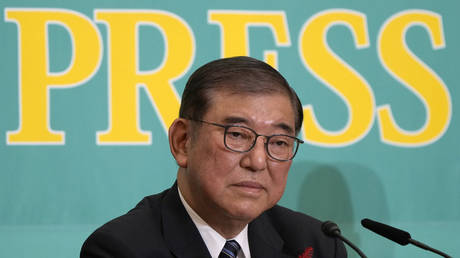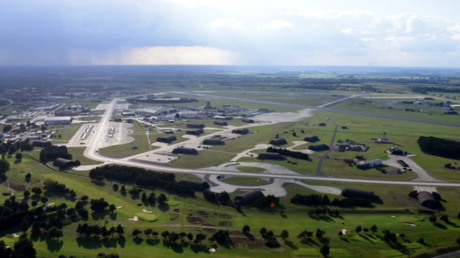ARTICLE AD BOX
The statement comes less than a month after Russia announced changes to its nuclear doctrine in response to growing Western involvement in the Ukraine conflict
Washington is ready for dialogue with Russia, China, and North Korea on nuclear security issues, US President Joe Biden said on Sunday. In a statement congratulating this year’s Nobel Peace Prize Winners, the Japan-based anti-nuclear-weapons organization Nihon Hidankyo, Biden called on global powers to continue taking steps to make the world safer by ridding it of nuclear weapons.
Nihon Hidankyo is a group formed by survivors from the Japanese cities of Hiroshima and Nagasaki, over which the US detonated atomic bombs during the closing stages of World War II. The organization was awarded this year’s Peace Prize “for its efforts to achieve a world free of nuclear weapons,” according to a statement on Friday from the Norwegian Nobel Committee.
Biden praised Nihon Hidankyo for “their historic work to ensure that nuclear weapons are never used again.” He expressed eagerness to jointly work on ways to reduce the nuclear threat with other atomic powers.
“The US stands ready to engage in talks with Russia, China, and North Korea without preconditions to reduce the nuclear threat. There is no benefit to our nations or the world to forestall progress on reducing nuclear arsenals,” the American president stated.
Read more Japanese PM recalls his ‘shock’ at seeing US nuclear bombing of Hiroshima
Japanese PM recalls his ‘shock’ at seeing US nuclear bombing of Hiroshima
However, those sentiments appear to run counter to reported changes to the US nuclear strategy made earlier this year. The New York Times reported in August that the Biden administration had approved a new version of the US doctrine ordering the country to prepare for possible coordinated nuclear confrontations with Russia, China, and North Korea.
The US has the second-largest nuclear arsenal in the world after Russia. Moscow has always stressed it has no wish to use nuclear weapons. However, last month, Russia announced critical changes to its own nuclear doctrine in response to deliberations by the US and its allies on whether to grant permission for Ukraine to use foreign-made weapons to strike targets deep inside Russia. Moscow’s new strategy will consider aggression against Russia and its closest ally Belarus “by any non-nuclear state, but with the participation or support of a nuclear state” as a “joint attack” that could trigger a nuclear response.
READ MORE: North Korea says US risking ‘nuclear disaster’
Commenting on the new doctrine on Sunday, Belarusian President Alexander Lukashenko said Russia was right to make the changes, because they can help prevent a further escalation of the Ukraine conflict by “cooling” Western “hotheads.”
.png)
 1 month ago
1
1 month ago
1








 English (US)
English (US)